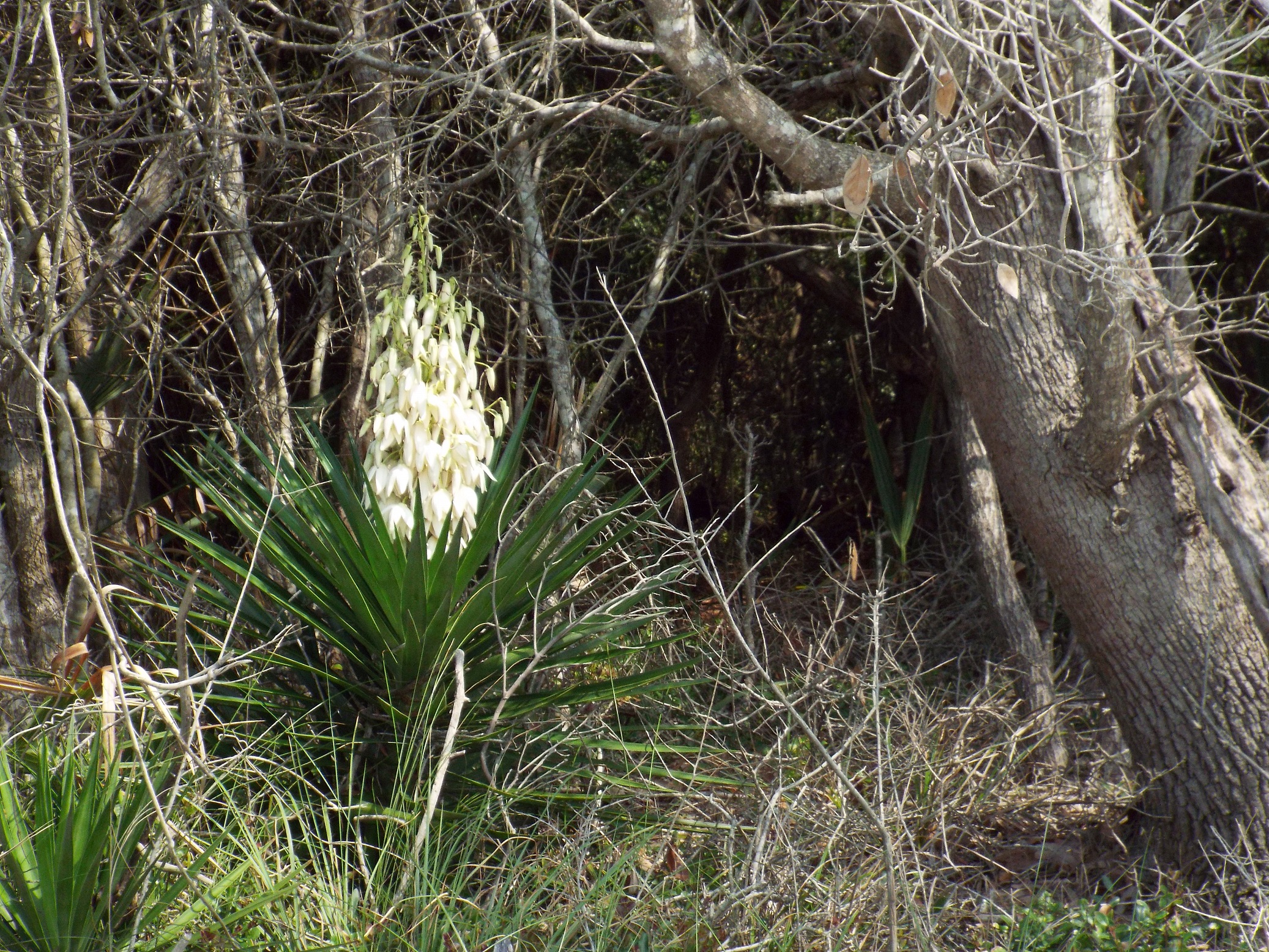
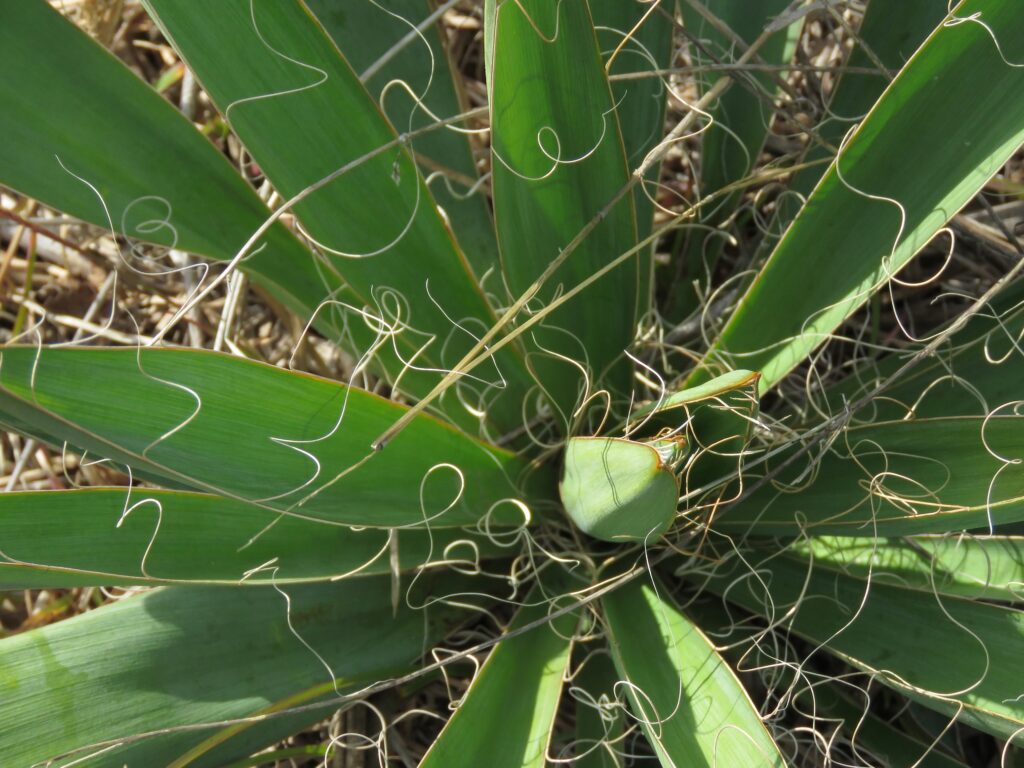
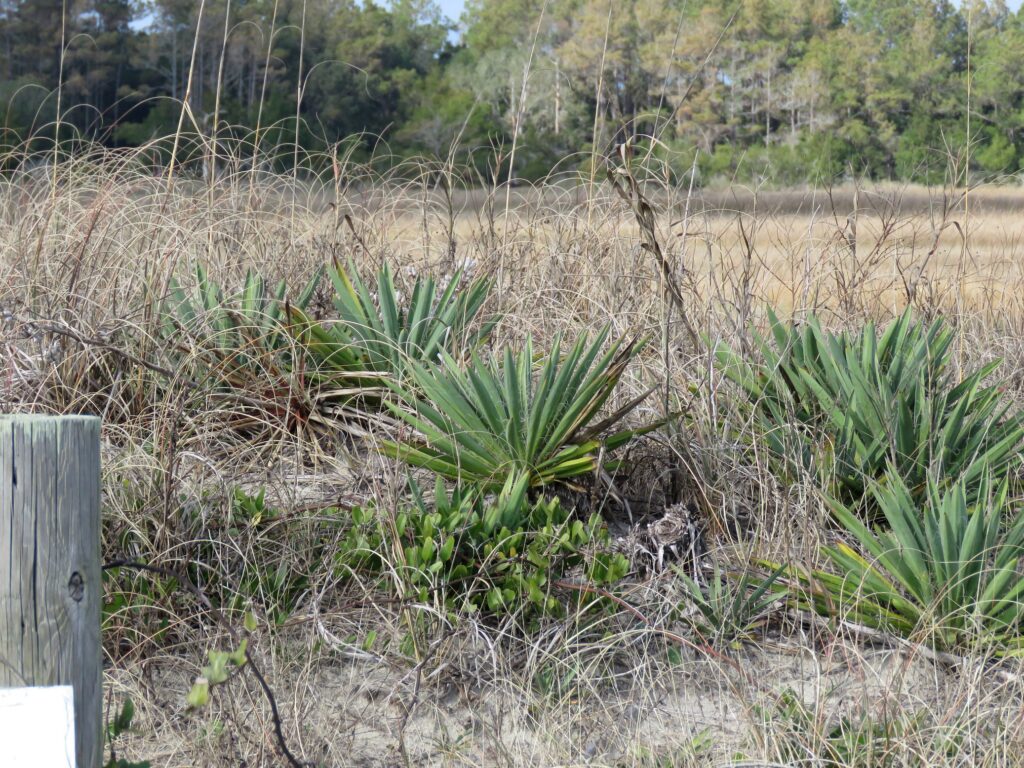
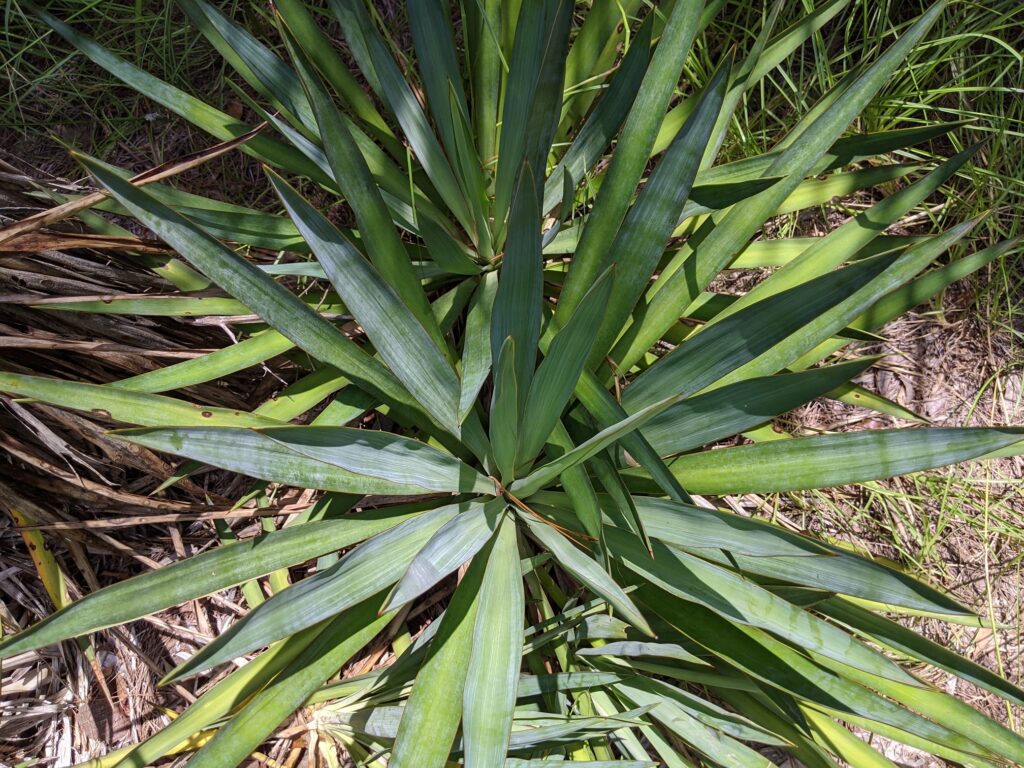
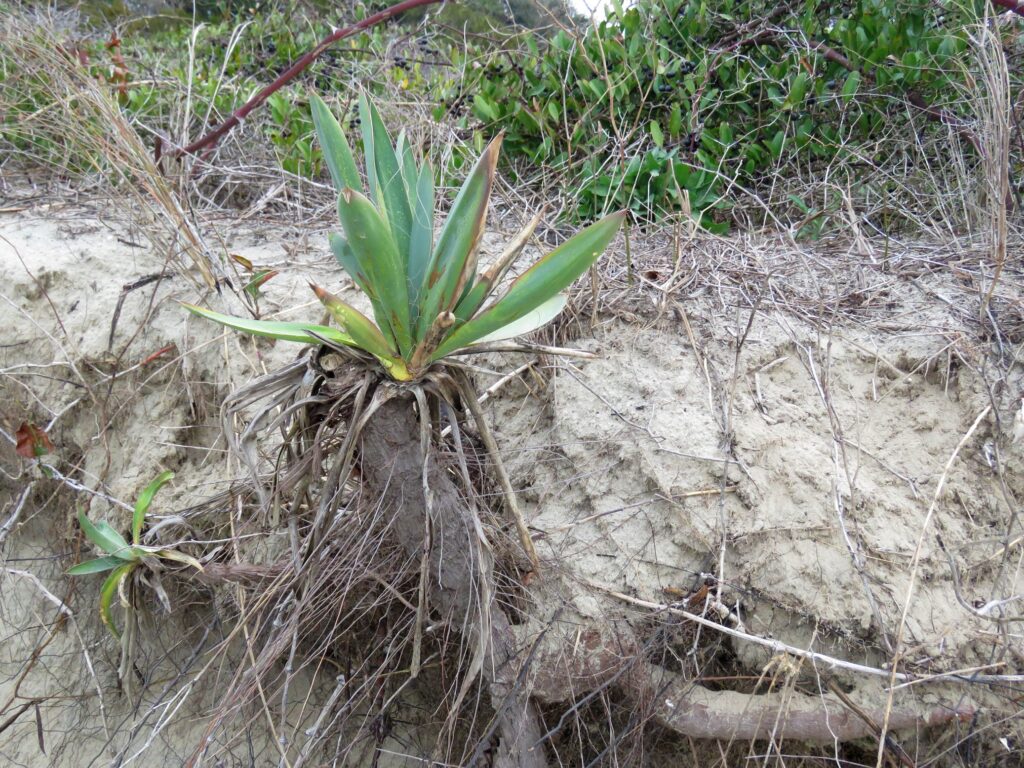
This week for Flora and Fauna Friday we have a genus of flowering plants quite unlike anything else in the Lowcountry, the Yuccas of genus Yucca.
Yuccas, often called Spanish Bayonets, are common throughout the coastal plain of South Carolina and one species, Yucca filamentosa, is found all the way into the foothills of the Blue Ridge Mountains. Members of the genus are easily identified by their blue-green, strap-like leaves that narrow to a folded point, singular stem, and summer blooms that bear head-high flower stalks dangling dozens of fist-sized, pendulous, ivory-white flowers. All species are evergreen, drought tolerant, and bloom during the heart of summer. Yuccas have robust root systems and, unlike Palmettos, will propagate clonally and regenerate if cut down.
On Edisto we have three species: Moundlily Yucca (Yucca gloriosa), Aloe Yucca (Y. aloifolia), and Adam’s-Needle (Y. filamentosa); each is more of a generalist than the last. Moundlily Yucca is fairly uncommon but easily found across the dune systems and barrier islands of Edisto. Its growth is relatively low and its leaves are relatively broad with smooth edges. Aloe Yucca is found across the Sea Islands of the Lowcountry and several miles inland. They have a tendency to clump together and have tall, erect growth habit that produces a spindly trunk beneath. Their leaves are long, narrow, and wield vicious terminal spines and a hacksaw inspired leaf margin. Aloe Yucca also produces a fruit, purple-green and reminiscent in shape to an overinflated baby-banana, which is said to be edible. Yet I can tell you, from personal experience, that that is up for debate. (To me it tasted, after baking, like wet slimy starch and burnt coffee grounds.) Adam’s-Needle is by far the most common Yucca in the state. It can be found from the blistering dune-scapes of the Atlantic Coast to the shadowed rain-slick slopes of the Blue Ridge. It grows low to the ground and often with company. The margins of its stiff, glaucous leaves fray away to leave telltale silver curls down their length, making it the easiest Yucca to identify by far.